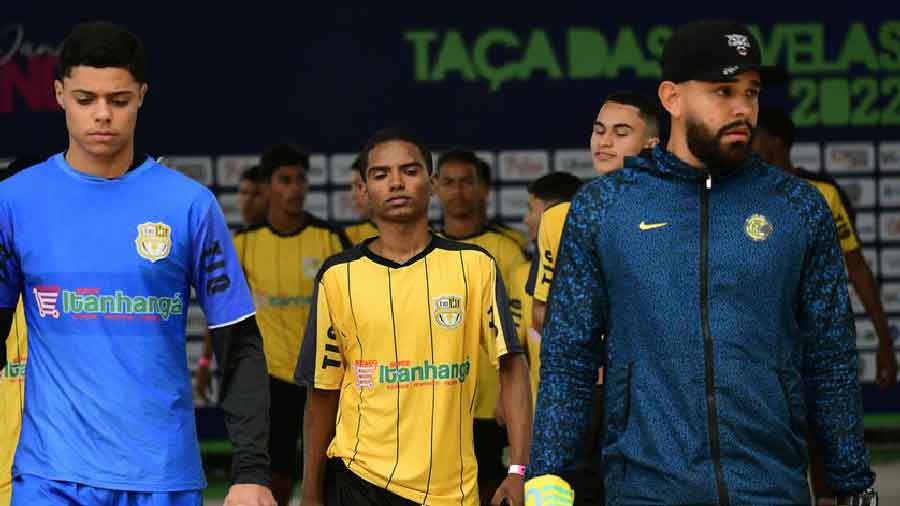The small stands in the Realengo stadium in Rio de Janeiro are full. Spectators are banging drums, holding up signs and singing as atmosphere swells in the heart of Brazil's most famous city.
Anyone who travels through here passes by rotten, half-built bus stops that should have been finished for the Olympics in 2016. They are one of the many unrealized aims of the state, who promised to use the Olympics to improve living conditions for the people living in the slums. Instead, corruption took hold once more.
Six years later, in the "Realengo", the Favela World Cup takes place, a tournament for the slums (favelas) of the city. There is a similar tournament in Sao Paulo. It's an 'Olympics for the poor', a grassroots movement of Brazilian football that has developed a charismatic character of its own.
Local pride
"This is the World Cup of the favelas," defender Julian Henrique Lopes told DW.
When he plays for his favela, Vila Croacia, he goes by the nickname "Hulk", given to him because of his physical stature.
"We give our life for this and we represent our slum," the 18-year-old said proudly.
The tournament is extremely popular and, after a break due to the pandemic, returns this year for its tenth outing. "We are back" is written on the blue signs around the arena. There are no VIP boxes here, just a lot of honest enthusiasm. One of the most noticeable differences to the professional game is that before the game everyone from subs, coaches and staff gets together for the team photo. Everyone is included, everyone is a part of it all.
In the small stadium, banners specifically tailored to the audience are on show. The organization that runs the favelas and expertly hosts the event, the CUFA, also make their presence felt. It is a united message: in this district, one often neglected by the state, there is untapped potential.
If the state or the official football association (CBF) does nothing, then people organize it themselves. And apparently they can do a better job than those running Olympic Games or World Cups, events that bring debt rather than development.
An historic accomplishment
Elaine Pereira dos Santos, coach of Vila Croacia has a similar perspective.
"This favela tournament is a chance for young people, and one that should always be there. With the support of Celso and CUFA, this tournament is an historic accomplishment," the 40-year-old told DW. "This is the only thing that welcomes people from the favelas."
And sometimes the tournament is the first step for the talents that go on to play professional football and make a move to Europe.
Ronaldo Cesar Sores dos Santos was a teenager at one of these tournaments and now he plays for Bulgarian side Levski Sofia.
"I played in two 'Taca das Favelas'. One when I was really young, just 14 or 15," Ronaldo Cesar recalls to DW. "The games there were a calm moment, a moment when we were all friends."
The 21-year-old admits today though, that in sporting terms, they were a tough lesson. "Whoever played badly was dropped."
Today, scouts looking for the next star who might have fallen through the cracks attend the games. And some players do indeed make the jump out of the 'Taca das Favelas' into the pro game, playing either in the Brazilian league or, like Ronaldo Cesar Sores dos Santos, in Europe.
Big final on Saturday
On October 8, the final will take place in Rio de Janeiro. Defender Julian Henrique Lopes and coach Elaine Pereira dos Santos only made it to the quarterfinals before losing to finalists "Complexo do Muquico", who will face "CRB Dick" in the final. In the women's final, "Complexo da Coreia" will play "Sapo de Camara" and the games will be played in the "Moca Bonita" stadium in Bangu.
"It's time for the big day, after months of hard work, lots of tasks and plenty of emotion. Now we have the chance to celebrate another big party at the 'Moca Bonita'," CUFA organiser Elaine Caccavo said ahead of the final.
From Deutsche Welle Newsfeed












